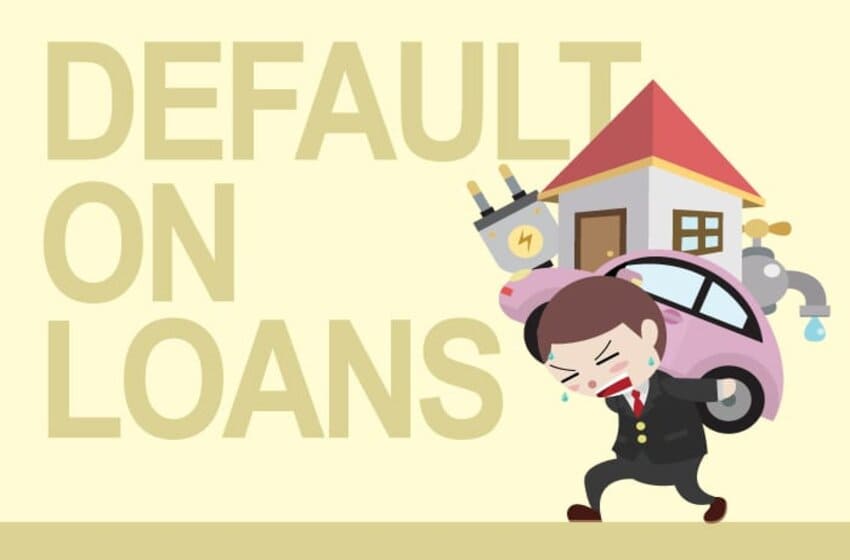
How Is The U.S Economy Aided By Bank Loan Defaults?
- Business Finance
 Andrey Ivanov
Andrey Ivanov- July 18, 2021
- 0
- 7 minutes read
JPMorgan Chase and Goldman Sachs made an announcement related to the bank’s earnings in this quarter and said that they have received better profits than was expected. And this was possible because the banks have set aside billions of dollars as bank loan defaults. Let us see what bank loan defaults are and how that affects the market.
What Is A Loan Default?
Loan defaults definition: Loan default takes place when a borrower cannot pay back a debt as per the initial arrangement. Failure to pay back a loan is called “Default”. In the case of most customer loans, this implies that the periodic payments have been skipped over the course of months. Thankfully, loan servicers and lenders allow a period of grace before they penalize the borrower after missing one installment. The time period between missing paying the loan and having loan default consequences is termed as delinquency. The delinquency period gives the borrower time to miss default by communicating with their loan servicing authority or making up by paying the missed installments. So this is what happens when you default on a loan.
How Bank Loan Default Works?
Defaulting on a loan can create a lasting and substantial drop on the credit score of the borrower, as well as a high rate of interest will be leveraged on any future loans. Any loan that is protected with collaterals will result in the pledged assets getting seized by the bank. The most common types of consumer loans that are backed by any collateral are auto loans, mortgages, and secured personal loans. Defaulting on an unsecured loan like credit card or student loans the effect lies on the severity as per the type of loan.
What Happens When You Default On A Loan?
When a debtor defaults on a loan the consequences include the following things:
- Negative remarks on the credit report of the debtor and lowering of the borrower’s credit score. A credit score is a numerical value that judges the creditworthiness of a borrower.
- Reduce the chance of getting a loan in the future.
- Increased rate of interest on the existing loan as well as on any future loan is granted.
- Garnishment of salaries or other penalties. Garnishment refers to the legal procedure that instructs the third party to deduct payments directly from the borrower’s bank account or from the wages.
The Wall Street And Bank Loan Defaults
After JP Morgan announced about the profits Jeff Mills who is a Chief Investment Officer of Bryn Mawr Trust said,
“Even if growth has peaked and starts to slow, it's likely to remain robust through 2022, at least. Folks are in better shape.”
By the end of this week, the earnings of Bank Of America, Morgan Stanley, Wells Fargo, and Citigroup will also be reported.
The Chairman and CEO of Chase portrayed the outlook of the consumers as rosy in its reports. The report read,
“Consumer and wholesale balance sheets remain exceptionally strong as the economic outlook continues to improve.”
He further said, noting
“The increasingly healthy condition of our customers and clients.”
There is a 45% increase in the spending on credit and debit cards which is unsurprising given the moribund condition of the U.S economy in the second quarter of 2020.
Another factor that is increasing the number is that the major banks are giving some loans loss reserves they hoarded at the beginning of the Covid-19 pandemic, guessing a wave of loans, credit defaults, and mortgages that never happened. As the banks have been releasing this amount of money, it increases their bottom line which is a transitory effect according to the Wall Street expert.
According to a senior banking analyst,
“We expect the rest of those reserves to be released through earnings over the next several quarters. The result is headline earnings should look favorable for banks.”
For the market, the next big question that arises is on how the executives of the banks characterize the economic activities when they look forward. According to David Wagner who is the portfolio manager at Aptus Capital Advisors,
“It’s going to be looking more at management's guidance into the future, especially in reference to loan growth. The demand for loans is still quite muted. Consumers are still flush with cash and a lot of companies have not been spending capital.”
Conclusion
The bank loan defaults are a muscular regulatory response just after the Great Recession, even though all the criticisms from the banks in the coming years may have been the invisible protective shield that saved them from the catastrophe.

